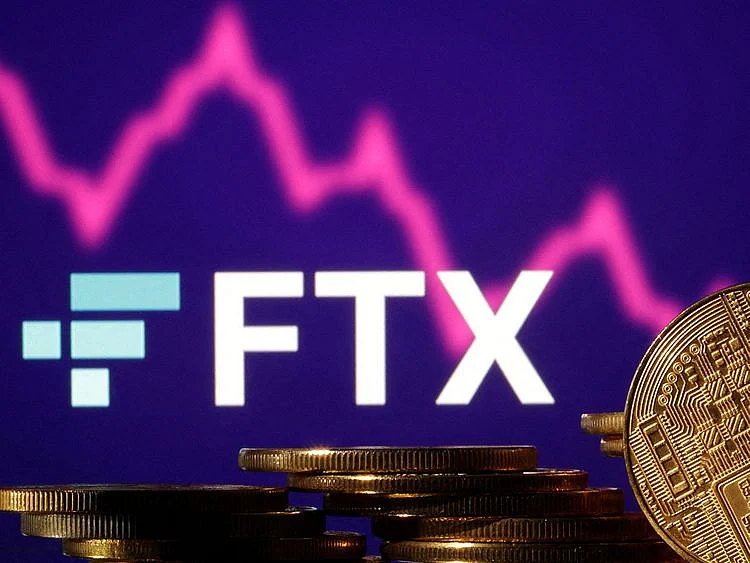FTX collapse sparks crisis for US bank Silvergate holding deposits for embattled affiliate firms
Customers withdrew $8.1 billion of digital-asset deposits from the Californian lender

Shares of US bank Silvergate Capital Corp. slumped in early trading after the lender said the crypto industry's meltdown triggered a run on deposits, prompting the company to sell assets at a steep loss and fire 40 per cent of its staff.
Customers withdrew about $8.1 billion of digital-asset deposits from the California-based bank during the fourth quarter, which forced it to sell securities and related derivatives at a loss of $718 million, according to a statement Thursday. Executives said on a conference call that Silvergate may become a takeover target.
"In response to the rapid changes in the digital asset industry during the fourth quarter, we took commensurate steps to ensure that we were maintaining cash liquidity in order to satisfy potential deposit outflows, and we currently maintain a cash position in excess of our digital asset related deposits," Chief Executive Officer Alan Lane said in the statement.
Shares of the company plunged 38 per cent to $13.70 in early trading.
The collapse of Sam Bankman-Fried's FTX sparked a crisis for Silvergate, which held deposits for FTX units and Alameda Research, the trading firm at the heart of the crypto exchange's downfall. Lawmakers are also scrutinizing the bank.
"The digital-asset industry has undergone a transformational shift, with significant over-leverage in the industry leading to several high-profile bankruptcies," Silvergate said in the statement. "These dynamics have sparked a crisis of confidence across the ecosystem and led many industry participants to shift to a 'risk off' position across digital-asset trading platforms."
The company said it "still believes in the digital-asset industry," and is committed to maintaining a "highly liquid balance sheet with a strong capital position." Executives said on the conference call that Silvergate's focus on the crypto industry is likely to make it a takeover target for a larger institution that wants to get into the space.
Silvergate's total deposits from digital-asset customers declined to $3.8 billion at the end of the fourth quarter. It said the workforce reductions amount to about 200 positions. The Wall Street Journal reported on the deposit withdrawals and job reductions earlier Thursday.
Silvergate once saw the crypto industry as giving it a huge growth opportunity. Over the course of a decade, it transformed itself from a firm catering to small businesses into a publicly traded company known for providing banking services to major crypto clients such as Coinbase Global Inc. and Gemini Trust Co. "- as well as FTX and Alameda Research.
The arrangement was going well, with Silvergate shares soaring to an all-time high of $222.13 in late 2021 as digital-asset prices set records. Then a painful crypto winter set in, with the value of virtual coins sinking, followed by FTX and its sister entities spiraling into bankruptcy in November.
The thesis behind Silvergate's crypto-focused payment platform, known as the Silvergate Exchange Network, is a relatively simple one: Crypto companies that might otherwise have trouble finding a banking partner can put their money on the platform and send it to each other in exchange for digital assets. Silvergate's network is only for US dollars and euros, and virtual-currency transactions don't take place on the platform.
The deposits placed on the system don't pay interest, giving Silvergate an almost-free method of funding its activities, and deposits from digital-currency customers swelled during crypto's heyday. With the stunning collapse of Bankman-Fried's empire, however, Silvergate's big bet on crypto has made it a target of short-sellers and attracted the scrutiny of lawmakers including Senator Elizabeth Warren.
Sign up for the Daily Briefing
Get the latest news and updates straight to your inbox
Network Links
GN StoreDownload our app
© Al Nisr Publishing LLC 2025. All rights reserved.